Diligent Sunday Newsletter / Issue #14 about my Top 10 Blogposts
Discover the top 10 blog articles from Deliberate-Diligence.com in 2022 and gain valuable insights from my six-month content creation journey. Start your week off right with this Diligent Sunday Newsletter.
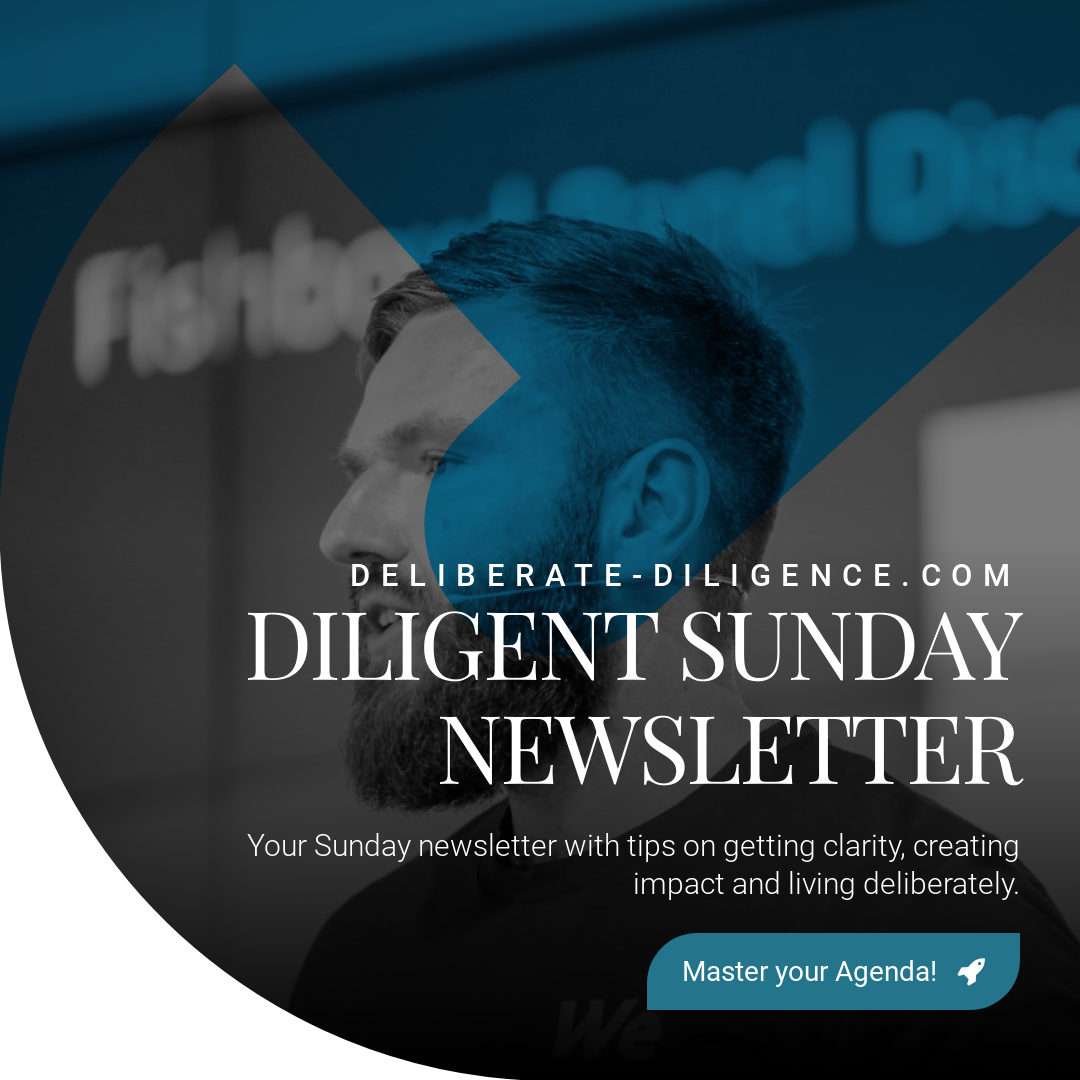
Introduction
Dear Diligent Sunday Readers,
I hope you had a good week? As of today, Sunday, the 16th of April, 29% of the year has passed, and we are quickly approaching the one-third mark of the year.
It still feels like the year has just started, but the typical summer vacation season is not too far away. This means those who want to implement important organisational projects only have about 2.5 months left. Otherwise, many topics will be delayed until the fall.
As for me, I am slowly considering how I can make something valuable out of my blog, Deliberate-Diligence.com. After six months of investing 2-4 hours daily in my blog and social media, I feel like I've learned the basics of content creation.
And as you, my readers, surely notice, I enjoy writing.
The problem is that my time investment only pays off if I solve specific issues in a particular target group, and I don't think that's the case right now. It's not enough for the content to be interesting. It must create real value. Ultimately, I want to make some pocket money from it (via video courses, a book, a premium newsletter, etc.).
I'm thinking about this (a solution is beginning to take shape), so I'm keeping the Diligent Sunday Newsletter shorter today: You'll find two listicles. One is my top 10 of my 2022er articles, where many of you weren't yet subscribers, and the other reflects on my first learnings from content creation as a side hustle, now that I've been doing it for six months.
I hope it will be helpful for you.
Otherwise, I wish you an extremely successful week!
Best regards,
– Martin
Today at a Glance:
- 💬 Quote of the Week.: Essentialism
- 🥇 Listicle #1: The top 10 of my 2022s blog articles
- ⚒️ Listicle #2: The top 10 learnings from my 6-month content creation journey
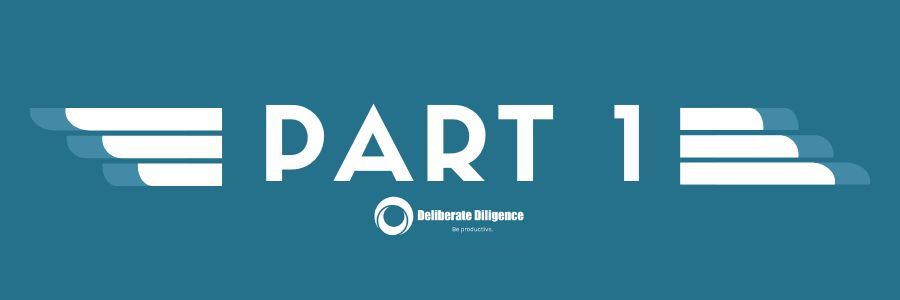
💬 Quote of the Week: Essentialism
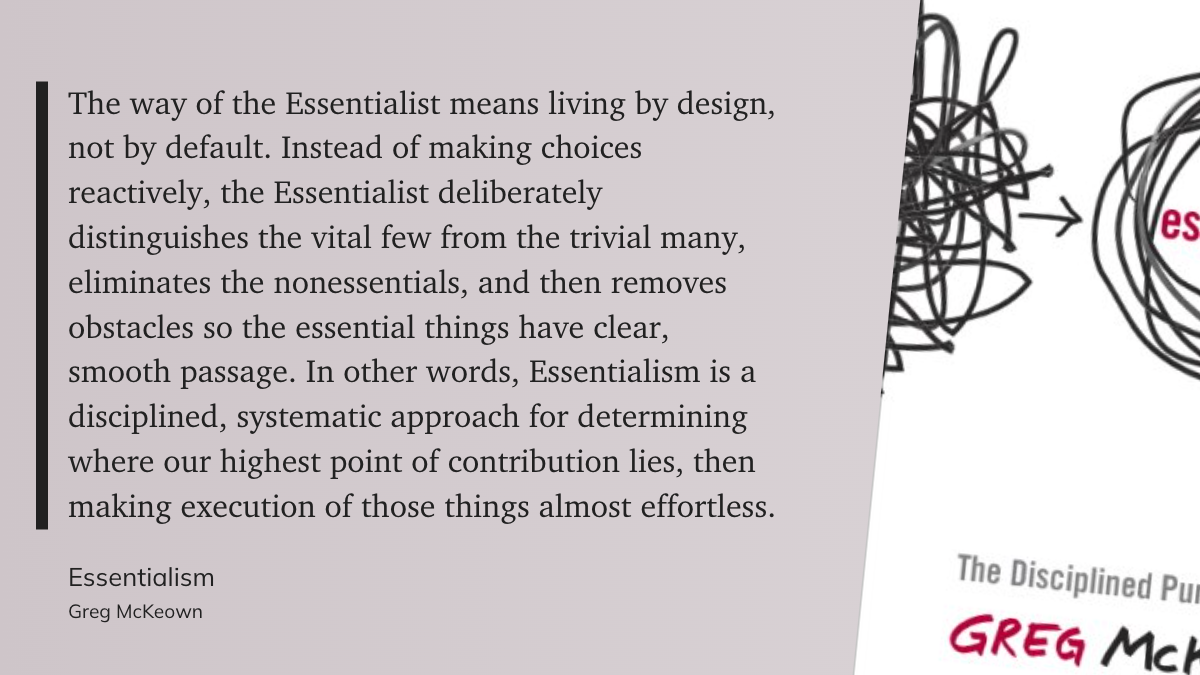
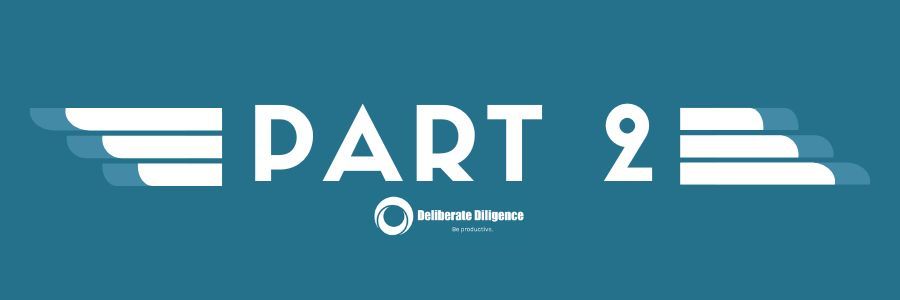
🥇 Listicle #1: The top 10 of my 2022s blog articles
I deliberately only looked at the 2022 list, as many of my subscribers only joined in 2023 and most likely missed these articles:
- Roam vs. Obsidian vs. Notion vs. Evernote: what's the best tool for a productivity-driven lifestyle?: My articles around note-taking tools generated a lot of traffic and positive feedback. However, I quickly realised that I would rather write about mindset and lifestyle than note-taking and productivity.
- The Joy of Walking and 11 additional benefits. This was my very first blog article. I even wrote it on Medium back in 2020, where it generated exactly zero views. Two years later, I found the energy to reenter the content creation business. It's a shame because many of today's big content creator accounts started in 2020, i.e., the first Corona year, just like I did. I wish I had stuck with it! But the time wasn't ripe enough, and my priorities were still on my career.
- Cloud, Data, and AI enable even more software-driven value chains. Much of my expertise revolves actually around digitalisation with topics such as cloud, data and AI due to my job. I am Head of Innovation in a large IT service provider that is part of a media group. However, I have only written about this domain 1-2 times so far, as I have to maintain a common thread in the blog to avoid getting bogged down and confusing the readers. Let's see. Maybe I can somehow weave this into the future concept of Deliberate Diligence. I look a little enviously at "The AI Guy" on LinkedIn, to be honest. His newsletter gained 115k subscribers from January to the end of March! Man, when I read that, I winced and got regret that I didn't write about tech instead of productivity and self-optimisation. However, I also have to say that my heart beats more for mindset, self-improvement and growth. It's pretty good rather to pursue the topic of the heart.
- A morning routine doesn't cause miracles but enables you to implement what you care about. I now write more often about habits, routines, and systems to allow desired changes. It has turned out to be one of the core themes I have in my head. This article here was the first on my morning routine. A little anecdote: every time I write articles about morning routines, two kinds of reactions come: Parents write that it's impossible to use the morning for your passion projects, and the night owls doubt that you have the most willpower in the morning. This seems to be a polarising topic 😁
- You have to think of money as capital, not purchasing power if you don't want to lose years of wealth accumulation. My first blog articles were short - about 5 minutes of reading and just under 1000 words. This also allowed me to publish 2-3 such articles every week. However, I now believe that the value of these "small" articles is limited, and I tend to write 2000+ character articles.
- Don't date someone you want. Date someone who wants you. I also have some messages about relationships and partnerships in mind, but this is not at the core of the value proposition of my blog, so I have avoided writing much about it so far. However, the ones I have written are particularly close to my heart. This also includes the piece about the Beauty Trap and my personal story about how I learned about the Shadow Self.
- Subtraction beats addition every single time. The article serves as a great reminder that my writing is not just for you but for myself as well. As a natural maximalist, I tend to add as much as possible when faced with a problem. I deeply ingrained this inclination, and you may have noticed that some of my blog articles have been longer than necessary. However, I often remind myself of the mantra, "Subtraction beats addition every single time." I believe this to be often true, and I use my content to reinforce this principle and effect change within myself.
- Organisational procrastination is a killer for your personal productivity. Although I have rarely touched on this topic, I have a few thoughts to share. While my blog primarily focuses on personal productivity and self-improvement, I believe organisations and companies have similar needs. If you work in a large organisation, you may have experienced the frustration of wasted time and effectiveness due to politics and teamwork issues. It's astounding how much room there is for improvement in this area! However, further exploring this topic would be better suited for another blog.
- How to achieve a flow state? Over time, this has become one of my core messages, and I have written several articles on the topic. I believe tackling your Most Important Task (MIT) first thing in the morning can significantly boost productivity. The MIT is usually the task that triggers the most fear, such as the fear of failure, and it's best tackled in a state of flow. I organise my day by dedicating a timebox from 9:00 to 11:30 am, which I call my "Eat the Frog" time, where I focus solely on completing the MIT. What sets this approach apart is the daily consistency, active defence against distractions, and the reward of a noon walk.
- Defend your time, and don't let anyone steal your attention. I once read that having an antagonist can be a good strategy for personal branding. In my case, my antagonist would be the Time Thief. Even though I am consciously aware and almost maniacal about managing my time, it's still incredible how often it slips through my fingers due to various distractions. Fighting against time thieves is a topic I plan to expand on further in my blog.
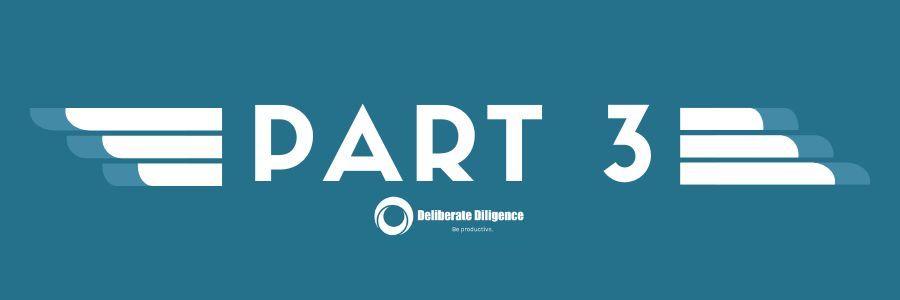
⚒️ Listicle #2: The top 10 learnings from my 6-month content creation journey
I've learned much about content creation over the past six months, and many of my initial assumptions were wrong. I recommend pursuing content creation as a side gig, so I'm happy to share my first learnings. I'll delve into this in more detail in an upcoming blog post, but here are the results of my initial brainstorming:
- The content creation gurus who want to sell you courses promise that you can become a content creator with just an hour of work per day. This is a fallacy. While this may be sufficient for simply writing blog articles, you also need to invest a lot of time in engagement and networking on social media. The more channels you use, the more time it will cost. If you don't do this, nobody will interact with your content; therefore, no one will see it because the algorithm will think your content is not worth showing. You should aim for about 2-3 hours per day, and even then, still expect it to take months to gain traction and build a following.
- At first, I thought the content concept was the most critical thing and spent a lot of time thinking about "Deliberate Diligence." I put the concept and product brand ahead of everything and put myself as a person in the background. The result? Nobody interacted with my content. Since I moved "Deliberate Diligence" to the background and put myself in the foreground, things have been much better, and I am steadily gaining new followers.
- Initially, I thought the new large language models like GPT meant that content creation would become easy and time-saving. However, I must say that only mediocre content came out in my experiments. Nowadays, 80% of new content creators on LinkedIn, for example, churn out out-of-the-box GPT content in their posts and comments. It's a complete mistake. You can tell at first glance (e.g., those typical "Remember..." closing clauses and lots of "However, ...") and think you're interacting with a machine. This leads to nothing, at least not to a content creation business. I also use a lot of GPT, but primarily for translations and language smoothing. As a German, I sometimes struggle to formulate sound, fluent English sentences that a native speaker would use. So, I write the most complicated of my sentences in German and ask GPT to "Translate and Improve Fluency." It works great, helps a lot, and doesn't take away the personality from the articles.
- The market discusses a lot of content marketing frameworks, hook line best practices, and SEO optimisation. You should not ignore existing best practices, but you must not fall into the danger of only thinking about filling out a template and forgetting the message you want to convey. My advice: ignore all the tips and write how you want, even if it's not optimal. Who cares? You'll have fewer views, but the right audience will read your content anyways.
- Similarly, people tend to want to copy the successful recipes of large accounts. On LinkedIn, for example, there's Justin Welsh, whom I think is cool. He's a solopreneur who sells courses on becoming a content creator solopreneur. I also bought one of his courses for $150 or so (it was worth it). But I noticed that you could only learn to a limited extent from these big accounts because they grew up in very different situations. For example, many started during the Corona lockdown, when new people came to the Internet.
- Consistency does not mean posting every day. As a content creator, you are told that you must post daily. On Twitter, even 3-5 times daily. At first, I believed this and optimised for this factor: the quality of my posts was only as good as what I could deliver with my limited time for those 2-5 posts per day (spoiler: not outstanding, to say the least). Consistency means something else. Consistency means consistently following your plan (which can also mean weekly posts) and consistently publishing remarkable content. If your content is not remarkable (judged by your current abilities), you should not publish it. Unfortunately, not all of my content is remarkable, but that's one of the aspects I want to improve on in the next few weeks.
- You are told to leave 30 comments under the posts of large accounts and your commenters daily per platform. While this is theoretically correct, I have learned it can be a considerable time and energy drainer. I have spent up to 1.5 hours commenting on other people's posts daily. This has also helped me get engagement on my content in return. However, it is somehow unpleasantly reciprocal, and I did not get back what I gave. In total, this is 1.5 hours that I gave away every day was time that I could have used to work on remarkable content instead. I have now decided to network/engage for only 15 minutes per channel (Twitter, LinkedIn, Insta) daily and timebox it strictly.
- Collect ideas and good content like crazy. What has turned out to be a good practice is to write down every idea that came to my mind regarding content and categorise it into the levels of my Deliberate Diligence blueprint. I do this in Notion, and my content database ensures I never run out of ideas.
- Follow your inner values. I was tempted 1-2 times to follow supposed growth hacks (for example, to scare readers with fears in so-called hook lines so they keep reading). But I could resist others (for example, adding selfies to LinkedIn posts to get more likes)—my core insight is to follow your inner values and not take shortcuts. For instance, I see many content creators who put together a low-value page as a PDF with supposed tips but only distribute it if you follow, comment, and retweet. I don't think that's a good style.
- Less is more. I've noticed something funny: the more I try to create a good post, the worse the performance. Trying too hard, for example, to provide a matching image for a content idea or tuning the wording of a tweet to perfection, is not what makes your content remarkable. It's just the idea or the effort to work out a realisation and provide it that is decisive. Nowadays, I try to consciously be less effortful in preparing content and focus more on reducing it to the essentials.
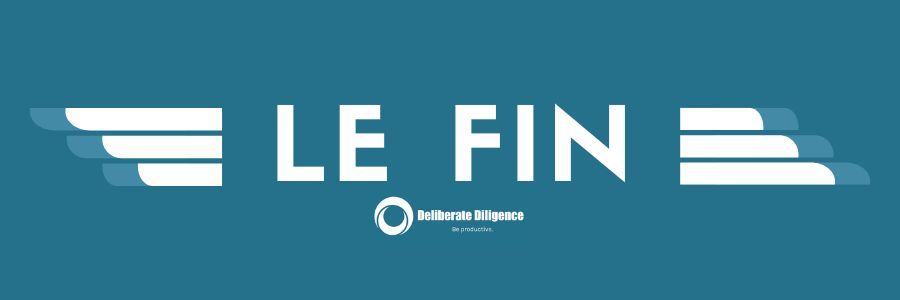
That's it for this week!
I hope you've got some value out of it, and I wish you a highly successful start to the week.
Best regards,
-- Martin from Deliberate-Diligence.com
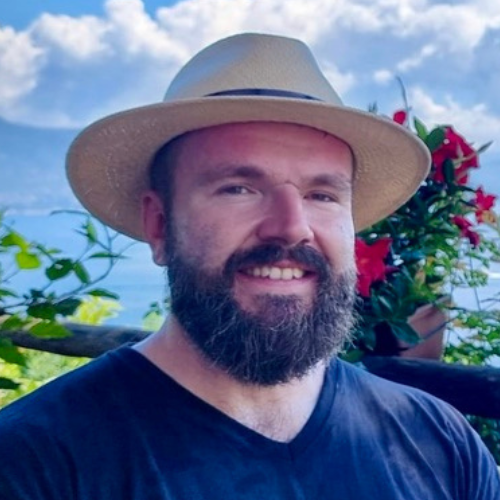
Discussion